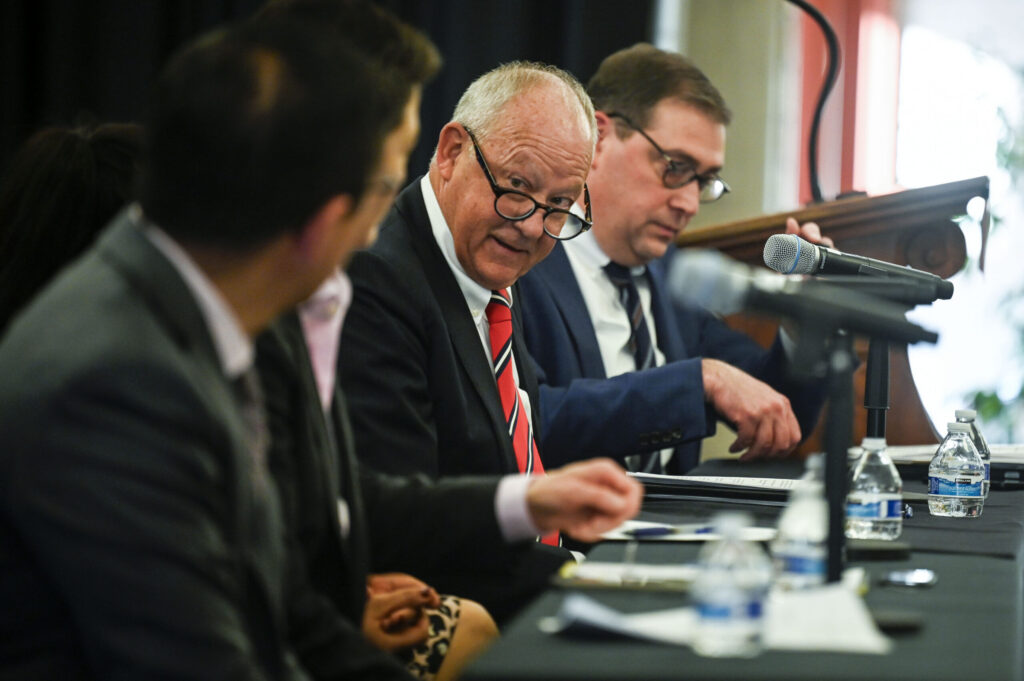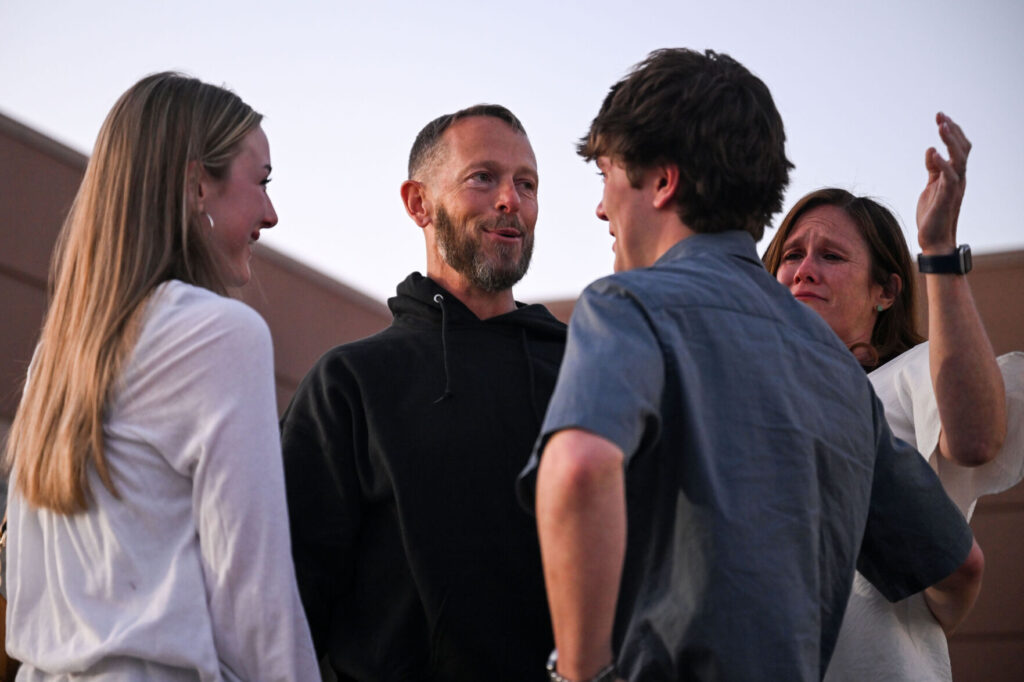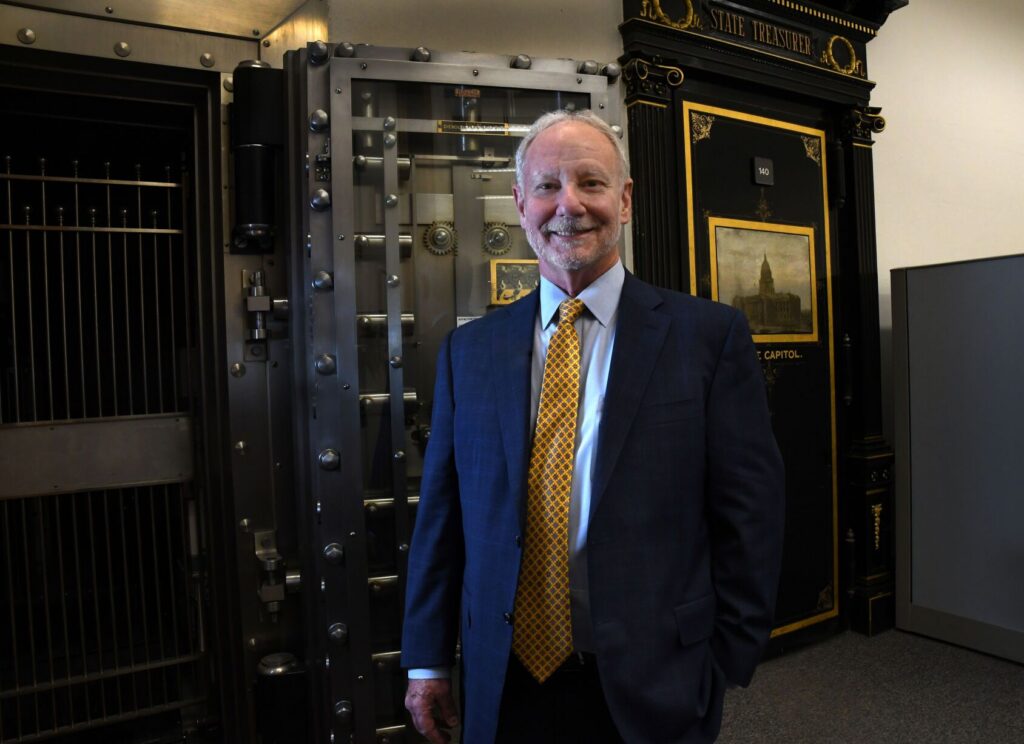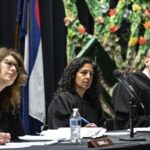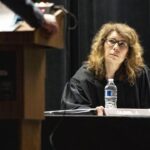Chief justice warns about threats to judiciary, state Supreme Court visits high school | COURT CRAWL

Welcome to Court Crawl, Colorado Politics’ roundup of news from the third branch of government.
Colorado’s chief justice warned that certain rhetoric is undermining the judiciary and judges’ safety, and the state Supreme Court visited a Denver high school to hold oral arguments.
‘Literally dangerous’
• Chief Justice Monica M. Márquez spoke at the Colorado Judicial Institute’s annual awards dinner and specifically called out certain types of rhetoric for compromising judges’ safety and threatening to “unravel our very democracy.”
• Márquez prefaced her remarks by saying that “criticism of our work and our decisions” is fair game. However, she pointed to “overtly racist or overtly misogynistic or homophobic messages” and “conspiracies about a corrupt judiciary” as problematic.
• “This kind of speech today in this environment, it’s literally dangerous,” Márquez said, adding that she sees “any action” undermining judicial independence as a threat to democracy, too.
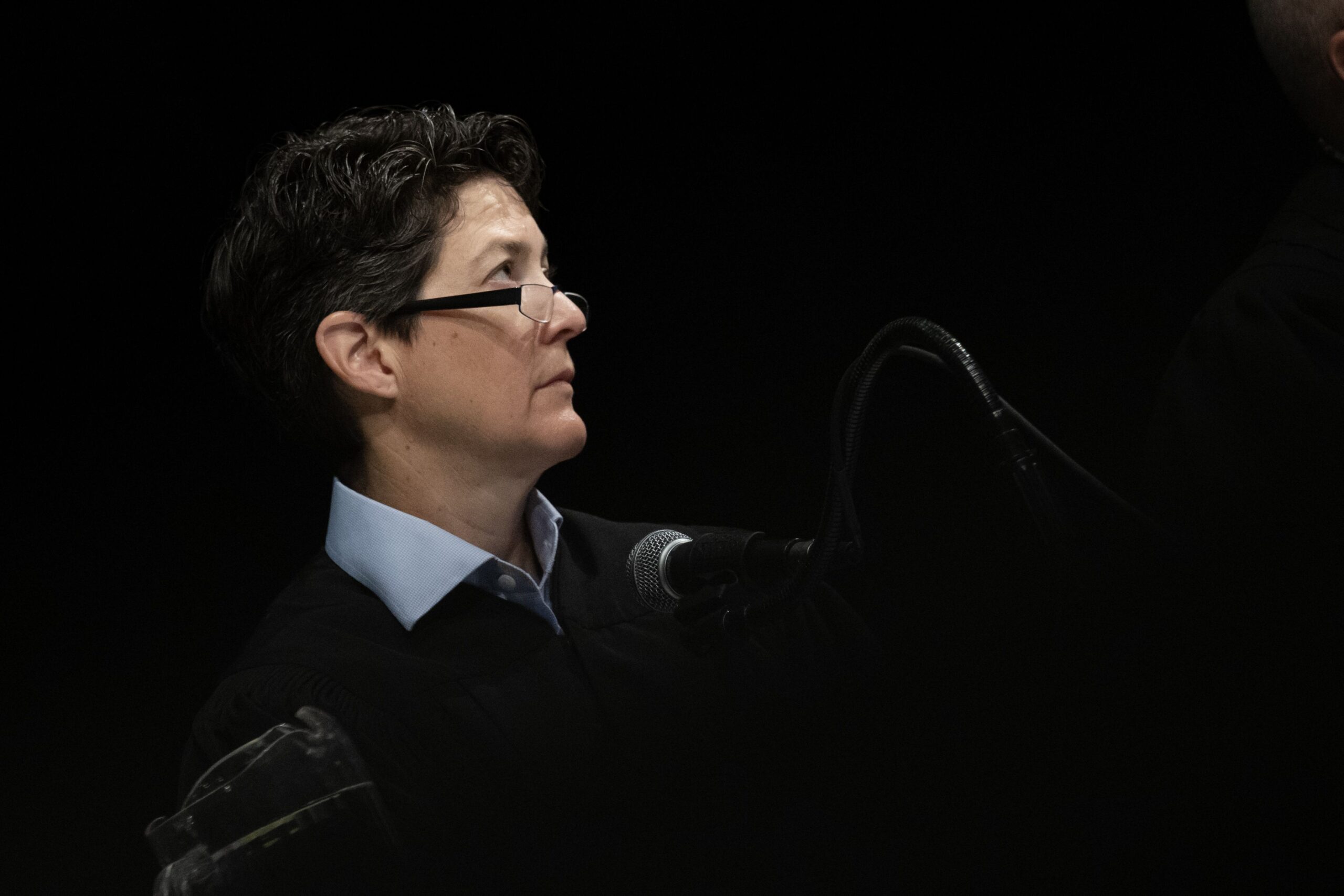
• The awards ceremony also served to recognize Chief Judge Susan Blanco of the Eighth Judicial District, Las Animas County Court Judge John Mochel, Denver County Court Magistrate Melissa T. Annis and Chief Judge Ryan Stuart of the 23rd Judicial District for their achievements.
Courts in the Community
• As readers may recall, the Colorado Supreme Court goes outside its courthouse in the spring and fall to hear oral arguments in real cases, usually at a high school. This time, they traveled down Colfax Avenue to East High School and faced relatively probing questions from students.
• In response to a question about whether the “values illustrated by the Constitution and Declaration of Independence are still being upheld,” Márquez said she believes they are, “in Colorado.”
• Responding to a question about bias in decision-making, Justice William W. Hood III said, “I don’t see any of us really bringing ideology to our discussions about how to apply the law. The truth is that we all end up with our biases based on how we were raised and educated and other things …. We don’t have problems with infighting. I’m not even sure how much they have at the United States Supreme Court, even though a lot of people would guess that they bicker a lot.”
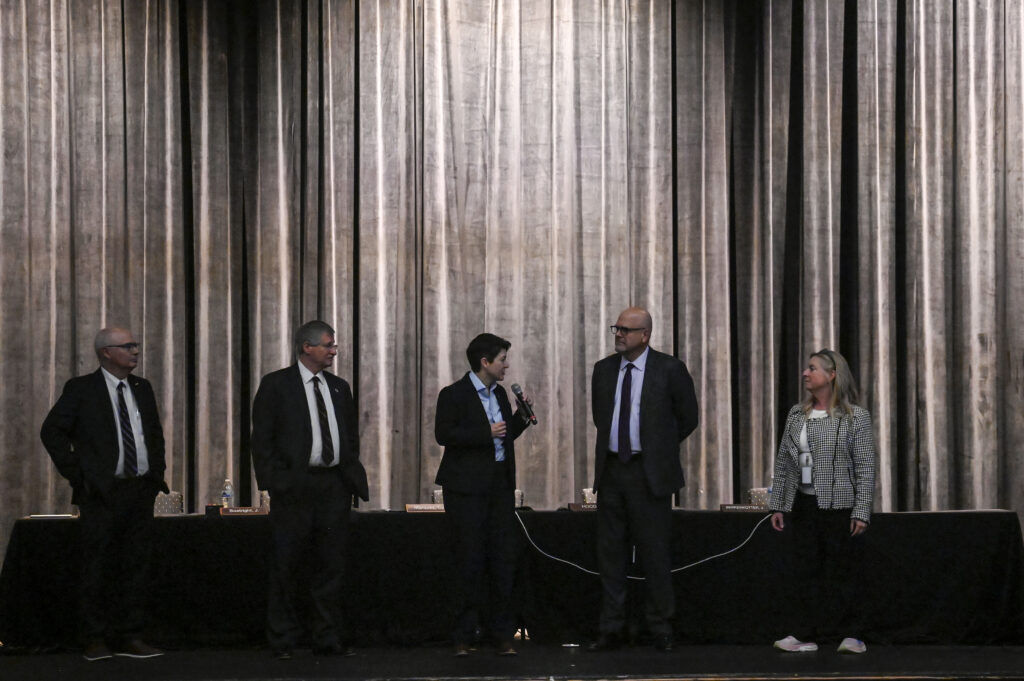
Other Supreme Court news
• Among the cases heard, the justices considered whether a convicted Arapahoe County defendant had credibly alleged he was selectively prosecuted based on his race.
• The court discussed whether a right to self-defense exists in the workplace, such that employers can’t terminate workers for exercising it.
• The justices were concerned about creating too high a barrier for convicted, self-represented defendants to show their trial lawyer performed a faulty DNA investigation that affected their case.
• The court considered whether a person convicted for attempting to influence a public servant needs to be the one who does the influencing, or if they can be charged for enlisting a third party to carry out the deception.
• The justices debated whether Denver detectives effectively reinitiated an interrogation after a suspect invoked his constitutional right to an attorney.
• The Supreme Court concluded the pre-2025 version of state law didn’t enable prosecutors to charge someone for generating realistic child porn with artificial intelligence tools.
• The court rejected a hospital’s argument that judges have broad authority to recalculate a jury’s damages award to injured medical malpractice victims.
Heard on appeal
• By 2-1, the state’s Court of Appeals believed a judge appropriately declined to revisit his ruling about the constitutionality of an arrest after police testified to a different sequence of events at trial than earlier in the case.
• Improper expert testimony prompted the Court of Appeals to overturn a defendant’s assault conviction.
• A Denver jury convicted a man for possessing more fentanyl than the evidence showed he did.

In federal news
• The U.S. Court of Appeals for the 10th Circuit rejected several theories for why workers should’ve been allowed to refuse COVID-19 vaccination without employment consequences.
• A federal judge advanced the defamation lawsuit of a woman who was allegedly called a “prostitute” at a dance party.
• A judge accused the government of acting in bad faith by scheduling a man’s deportation hearing one day after he challenged his detention in court.
• Another judge said he was “dumbfounded” by the government’s position that its own internal policy governing warrantless immigration arrests shouldn’t be enforceable through a court order.
• A judge ordered a man in immigration detention to be released immediately after determining the government was misapplying its mandatory detention authority.
Update on the shutdown
• Last week, both the 10th Circuit and Colorado’s federal district court announced changes as a result of the continuing lapse in congressional appropriations. For the 10th Circuit, the clerk’s office now has its front counter open only four hours a day.
• For the district court, there’s a longer list of alterations, including prohibitions on non-case-related travel, “non-essential” committee meetings, naturalization ceremonies, educational activities, legal programming, hiring and equipment purchasing.
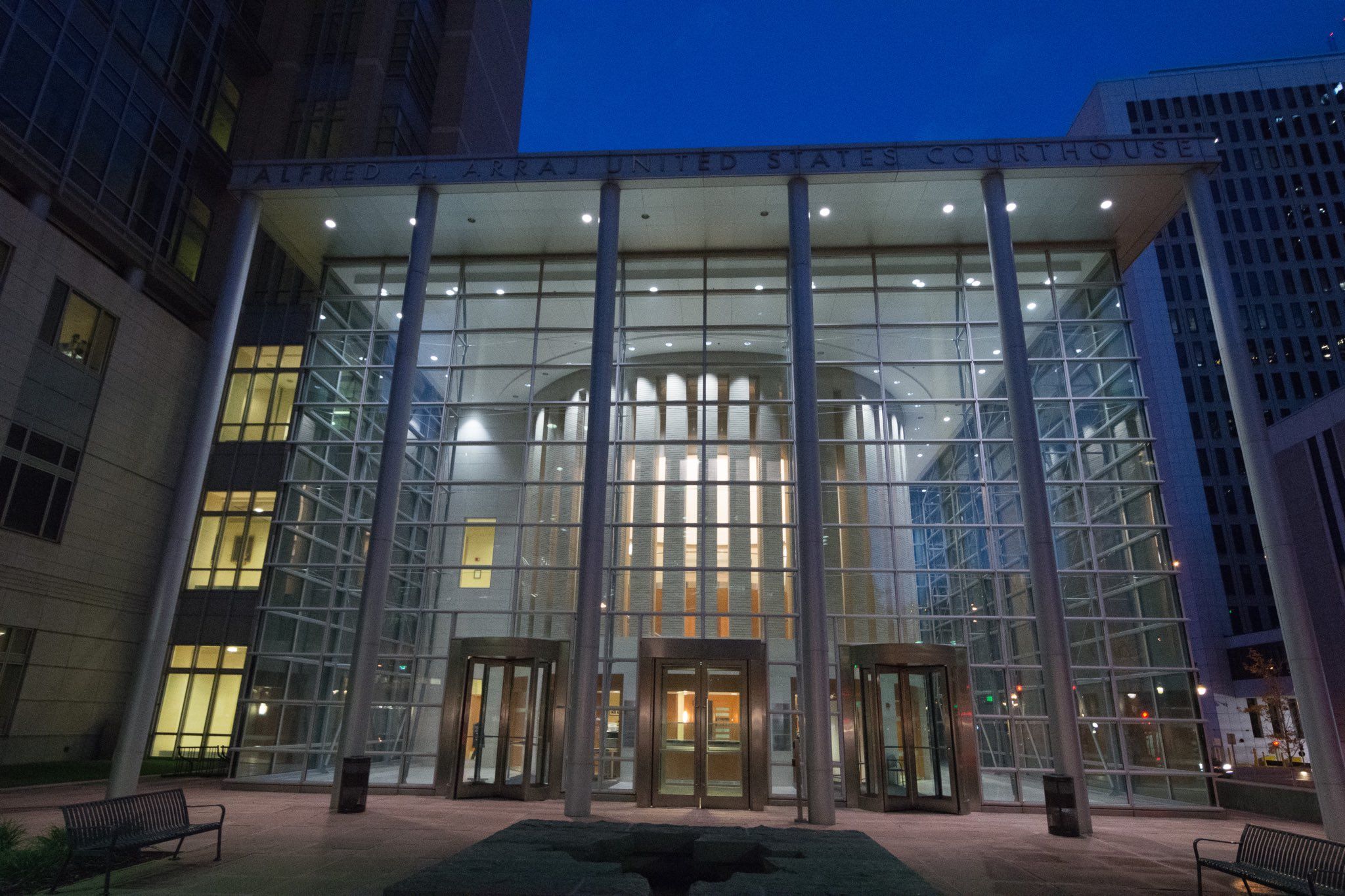
Vacancies and appointments
• The chief justice has appointed Kim S. Shropshire to be the chief judge of the Sixth Judicial District (Archuleta, La Plata and San Juan counties). Shropshire has been a district judge since 2022 and she will succeed retiring Chief Judge Jeffrey R. Wilson.
• There are three finalists to succeed Wilson on the district court: Katie Ann Dittelberger, San Juan County Court Judge Anthony D. Edwards and La Plata County Court Judge R. Reid Stewart.
• There are two finalists to succeed now-District Court Judge Justin P. Fay in his former role as the Archuleta County Court judge: San Juan County Court Judge Anthony D. Edwards and Matthew Gregory Margeson, who resigned last year after a brief stint as the Dolores County Court judge.
• Applications are due by Nov. 3 to succeed Judge Pamela E. Johnston as a part time judge on the Kiowa County Court. A non-lawyer, she was on the bench for little over a year before her resignation.
• On Wednesday evening, the state’s judicial department is hosting an in-person event in Vail with judges of the Fifth Judicial District (Eagle, Lake, Summit and Clear Creek counties) about what it is like to apply to a judgeship and be a judge. Contact braden@angellawoffice.com to attend.
Miscellaneous proceedings
• The state judicial branch’s annual conference took place in Vail and featured remarks from former defense secretary Leon Panetta, legal updates, a security briefing and a discussion of agentic AI, among other things.
• The Colorado Supreme Court’s Civil Rules Committee debated a potential change that would make it easier for tenants to respond to and contest their evictions.
• Lawyers and one trial judge spoke about the implications of the Supreme Court’s recently issued rule governing racial discrimination in criminal jury selection, which was scaled back from the original proposal but wasn’t necessarily a pure formalization of the existing protocols.



